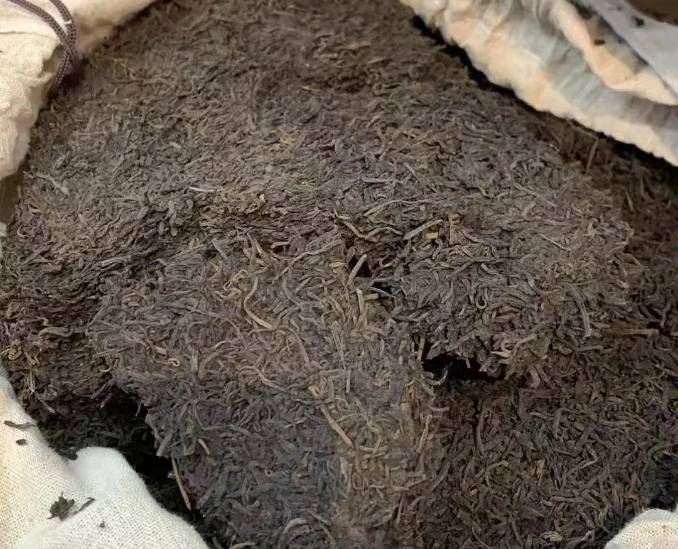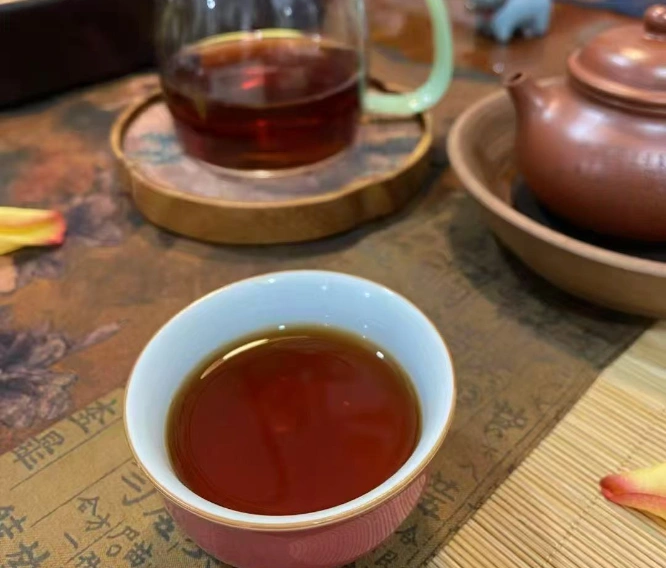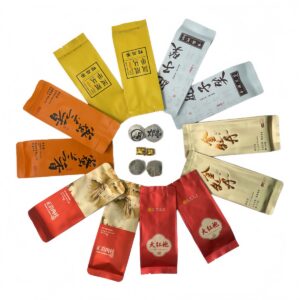Dark tea for cholesterol management has emerged as a soothing, time-honored ritual that supports heart health while delighting the senses. Picture a warm cup of deep amber tea—its steamy aroma of aged wood and subtle smokiness drifting through the air. With each silky sip, you feel an inner calm as active compounds begin their work: gently modulating lipid metabolism, supporting your liver, and soothing low-grade inflammation.
In this guide, we’ll explore how dark tea for cholesterol management can become your daily ally—unveiling its fermentation secrets, bioactive heroes, brewing tips, top varietals, and practical routines to weave heart-healthy tea into your life.

Understanding Cholesterol & Why Management Matters
Cholesterol, a waxy substance in your blood, is vital for hormone production and cell structure—but excess LDL (“bad”) cholesterol raises cardiovascular risk. Managing levels through diet, exercise, and supportive beverages like dark tea for cholesterol management helps maintain healthy arteries, balanced lipid profiles, and lasting well-being. By integrating natural remedies, you empower your heart to thrive.
What Is Dark Tea? Fermentation That Empowers Health
Dark tea—Hei Cha in Chinese—stands apart thanks to its microbial post-fermentation and controlled aging. After initial oxidation, leaves are piled and moistened, inviting molds and bacteria to transform catechins into theabrownins, organic acids, and polysaccharides. These molecules lend dark tea its signature:
- Deep reddish-brown liquor that glows warmly in your cup.
- Earthy, woody aroma with muted sweetness and gentle smoke.
- Velvety mouthfeel that coats your palate with soothing depth.
This alchemy endows dark tea with unique health-supporting properties, making it ideal for dark tea for cholesterol management.
Key Bioactive Compounds in Dark Tea for Lipid Control
Several compounds in dark tea contribute to lipid regulation:
- Theabrownins: These oxidized polyphenols inhibit pancreatic lipase, reducing fat absorption and lowering LDL levels.
- Gallic and other organic acids: Promote bile secretion, aiding cholesterol metabolism in the liver.
- Polysaccharides: Exhibit prebiotic effects, nurturing gut flora that influence systemic lipid profiles.
- Catechins & flavonoids: Though lower than in green tea, they still offer antioxidant protection to blood vessels.
Together, these molecules position dark tea for cholesterol management as a multifunctional heart ally.

Dark Tea and Liver Health: Boosting Lipid Metabolism
Your liver is central to cholesterol synthesis and clearance. Dark tea and liver health intersect powerfully:
- Enzyme modulation: Dark tea compounds upregulate LDL receptors and detox enzymes, accelerating cholesterol conversion to bile acids.
- Detox pathways: The gentle diuretic action helps excrete waste products, supporting liver resilience.
- Antioxidant defense: Theabrownins protect hepatocytes from oxidative stress, preserving lipid-processing capacity.
By sipping dark tea for cholesterol management, you nurture your liver’s ability to balance lipids naturally.
Dark Tea Detox Benefits: Clearing Bad Cholesterol Precursors
Dark tea’s detox prowess extends beyond the liver. Its organic acids and polyphenols:
- Bind with endotoxins produced by pathogenic gut bacteria, preventing them from contributing to systemic inflammation and lipid oxidation.
- Enhance lymphatic drainage, flushing cholesterol-rich debris from tissues.
- Support kidney filtration, complementing liver detox for a two-pronged defense against plaque formation.
Incorporate dark tea detox benefits into your morning routine to kickstart daily cleansing.
Anti-Inflammatory Edge: Dark Tea Anti-Inflammatory Properties
Chronic low-grade inflammation underlies atherosclerosis. Dark tea anti-inflammatory properties help:
- Inhibit pro-inflammatory cytokines like TNF-α and IL-6.
- Reduce NF-κB activation, a key pathway driving vascular inflammation.
- Prevent endothelial dysfunction, protecting blood vessel integrity.
When you choose dark tea for cholesterol management, you also harness its calming effects on inflamed tissues.
How to Brew Dark Tea for Maximum Cholesterol Benefits
To extract heart-healthy compounds:
- Water Temperature: Heat to 95–100 °C (203–212 °F).
- Leaf-to-Water Ratio: Use 5–7 g per 200 ml for a potent infusion.
- Rinse & Awaken: Briefly flush leaves for 5 s to remove dust and prime fermentation flavors.
- Steep Times:
- First infusion: 2–3 minutes
- Subsequent: +30 s each for 4–6 infusions
- Mindful Sipping: Inhale the warm steam before each sip, allowing compounds to interact with your metabolism and senses.
For a refreshing twist, try cold brew: steep 5 g leaves in 500 ml cold water overnight, yielding a smooth, antioxidant-rich tonic.

🔗 To learn more about how to make tea, check out Tanbiwencha’s YouTube video explaining how to make tea.
Top Dark Tea Varieties for Cholesterol Management
1. Ripe (Shou) Pu-erh
Accelerated fermentation yields a rich, chocolatey cup high in theabrownins and organic acids—ideal for daily cholesterol support.
2. Aged Liubao Tea
Guangxi’s specialty offers malt-sweet layers and moderate tannins, with documented lipid-lowering effects and gentle gut soothing.
3. Fu Brick Tea (Fuzhuan Cha)
Golden flowers add anti-inflammatory peptides, while its complex profile calms digestion and fosters detox.
4. Anhua Dark Tea
Bamboo-pressed and cellar-aged, this Hunan treasure combines smoky warmth with potent liver-enhancing antioxidants.
Incorporating Dark Tea into Your Daily Routine
- Morning Ritual: Begin with a cup of ripe Pu-erh to awaken metabolism and stimulate bile flow.
- Post-Meal Pause: Enjoy aged Liubao or Fu Brick tea to curb fat absorption and support dark tea digestion.
- Afternoon Reset: Use a quick infusion to maintain alertness without sugar-laden drinks.
- Evening Wind-Down: Opt for a light Anhua infusion to relax and aid overnight lipid processing.
Pair with a heart-healthy diet—fiber-rich fruits, vegetables, and lean proteins—for synergistic cholesterol management.
Dark Tea vs. Other Teas: Which Supports Heart Health Best?
| Tea Type | Key Heart Benefits | Caffeine | Flavor |
|---|---|---|---|
| Dark Tea | Theabrownins reduce LDL, organic acids support bile flow | Moderate | Earthy, mellow |
| Green Tea | EGCG lowers cholesterol, potent antioxidants | Moderate | Grassy, astringent |
| Oolong Tea | Intermediate oxidation, aids lipid metabolism | Moderate | Floral, fruity |
| Black Tea | Theaflavins support vascular health, but less fermentation | High | Robust, malty |
While all teas offer benefits, dark tea for cholesterol management excels thanks to post-fermentation compounds uniquely tuned for lipid control.
Safety Considerations & When to Consult a Professional
While generally safe, consider:
- Caffeine Sensitivity: Limit to 2–3 cups daily if prone to jitters or insomnia.
- Medication Interactions: Discuss with your doctor if you’re on statins or blood thinners.
- Quality Matters: Choose reputable sources to avoid contaminants and ensure true fermentation.
Consult a healthcare professional before making substantial dietary changes, especially if you have existing heart or liver conditions.
Conclusion & First-Sip Recommendations
Embracing dark tea for cholesterol management is more than a beverage choice—it’s a holistic ritual that engages body and mind. Start your journey with a cup of ripe Pu-erh in the morning to stimulate bile flow, follow up with aged Liubao after meals to curb fat absorption, and savor Fu Brick tea’s anti-inflammatory depth in the afternoon. Over weeks, you’ll notice gentler digestion, steadier lipid profiles, and a sense of calm energy. Raise your cup to heart health—cheers to a balanced, vibrant life powered by the ancient wisdom of dark tea.



